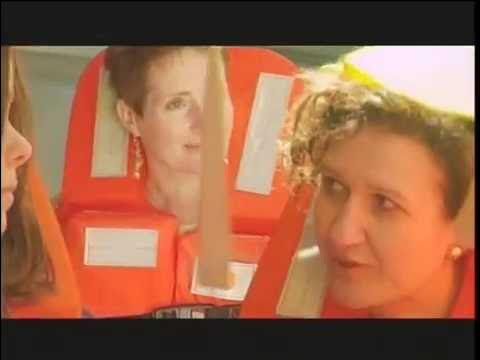Why it's so hard to make healthy decisions | David Asch
Summary
TLDRThe script highlights the irrationality of human behavior, especially in healthcare. Using the example of Jon Corzine's car accident, it emphasizes how knowledge alone isn't enough to change behavior. Through behavioral economics, the speaker explains that people are irrational in predictable ways. Techniques like framing incentives as losses, using social influence, and leveraging regret can lead to better outcomes in health and other areas. The key to improving health behavior lies in recognizing and harnessing these irrational tendencies, rather than relying solely on rational education or financial incentives.
Takeaways
- 🚗 Jon Corzine, former New Jersey Governor, was severely injured in a car accident while not wearing a seatbelt, despite knowing the risks.
- 🤔 The key issue with Corzine's behavior wasn't a lack of knowledge about seatbelt safety but a failure to act on that knowledge, reflecting a broader challenge in health behavior.
- 📚 Our approach to health improvement is often rooted in the assumption that rational information leads to rational behavior, but that’s rarely the case.
- 💡 Behavioral economics acknowledges that people are irrational, but in predictable ways, allowing for strategies that can influence behavior.
- 🎂 Present bias explains why people prioritize immediate rewards (like eating cake) over long-term benefits (like staying on a diet).
- 📈 Small probabilities are often overestimated, which is why people buy lottery tickets even though the odds of winning are minimal.
- 📦 Regret aversion is a powerful motivator—people are more likely to take action to avoid missing out on something they could have had, like a lottery prize or achieving a health goal.
- 🧠 Behavioral interventions, like defaulting to generic medications in hospitals, can lead to massive savings and improved outcomes without needing people to change their mindset.
- 💰 Framing incentives as losses rather than gains motivates people more effectively, as seen in experiments with step goals and medication adherence.
- 👀 Social influence and observation play significant roles in changing behavior; people act differently when they know they are being watched or think they are being watched.
Q & A
What was the key incident that highlights irrational behavior in the script?
-The key incident is Jon Corzine, the Governor of New Jersey, being involved in a severe car accident while not wearing a seat belt, despite knowing the risks and the benefits of wearing one.
What fundamental weakness in improving health behavior does the speaker identify?
-The speaker identifies that our approach to improving health behavior assumes people are rational and will change their behavior when given information, but often people act irrationally, as seen in Jon Corzine’s case.
What is 'present bias' as explained in the transcript?
-Present bias is the tendency to give more importance to immediate rewards or outcomes over more significant but distant future outcomes. For example, choosing to eat a piece of cake now despite wanting to lose weight.
How do behavioral economists view human decision-making differently from traditional economists?
-Behavioral economists acknowledge that humans are irrational in predictable ways and that emotional, social, and contextual factors strongly influence decision-making, whereas traditional economists assume people make rational, calculated decisions.
How does 'regret' play a role in influencing health behavior?
-Regret plays a powerful role in influencing behavior because people strongly dislike missing out on rewards. The speaker describes how informing patients they missed a prize because they didn't take their medication motivates them to avoid future regret by adhering to their treatment.
What behavioral solution was implemented to reduce prescription of brand-name drugs in favor of generics?
-The solution was to modify the electronic health record system so that prescriptions defaulted to generic medications rather than brand-name drugs. This simple change led to a significant increase in generic prescribing.
How did the concept of 'loss aversion' help increase step counts in a walking program?
-Participants who were given a virtual balance of $42 at the beginning of the month and saw money deducted daily for failing to meet their step goal were more motivated to walk, due to their desire to avoid losses, compared to those who were simply rewarded for walking.
Why did implementing a fine for late daycare pickups backfire in the Israeli daycare example?
-The fine backfired because it shifted parents' motivation from an intrinsic desire not to inconvenience the daycare staff to an economic calculation, making late pickups seem like a service they were willing to pay for.
What example demonstrates how social observation influences health behavior?
-One example is the use of a picture of eyes above a sink in a hospital, which significantly increased handwashing rates because people felt as though they were being observed, even though it was just a photograph.
What does the speaker suggest is the most effective way to improve health behavior?
-The speaker suggests that instead of relying solely on rational education, we should harness predictable irrational behaviors, such as regret aversion and social influence, to design systems that make healthy choices easier and more automatic.
Outlines

Cette section est réservée aux utilisateurs payants. Améliorez votre compte pour accéder à cette section.
Améliorer maintenantMindmap

Cette section est réservée aux utilisateurs payants. Améliorez votre compte pour accéder à cette section.
Améliorer maintenantKeywords

Cette section est réservée aux utilisateurs payants. Améliorez votre compte pour accéder à cette section.
Améliorer maintenantHighlights

Cette section est réservée aux utilisateurs payants. Améliorez votre compte pour accéder à cette section.
Améliorer maintenantTranscripts

Cette section est réservée aux utilisateurs payants. Améliorez votre compte pour accéder à cette section.
Améliorer maintenant5.0 / 5 (0 votes)






